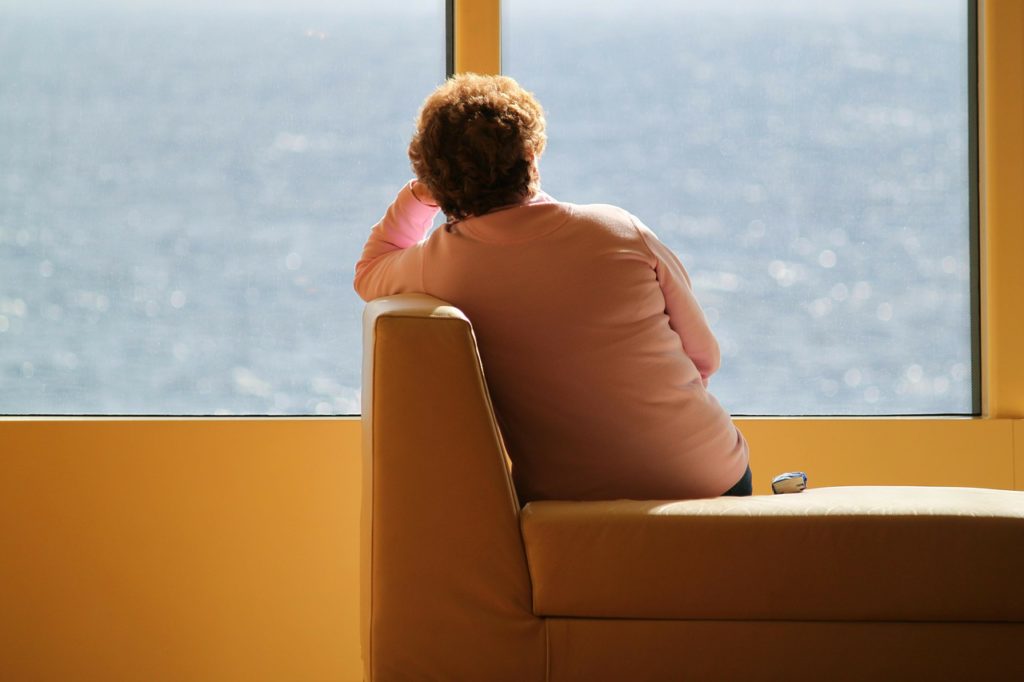10 Signs of Elderly Depression to Watch For

Has Mom or Dad seemed more “down” than normal? Maybe they’re unusually quiet or seem to be withdrawing from activities that they usually enjoy. While it can be easy to write off behavior changes as being a part of the aging process, you might actually be seeing signs that your aging parent is depressed.
[pro_ad_display_adzone id=”5158″]
10 Signs of Depression in the Elderly
In order to understand the signs of depression in seniors, let’s take a quick look at how depression affects the elderly.
What You Should Know About Depression in Seniors
Depression can affect people at any stage of life, but while depression certainly affects seniors, it may not be as readily recognized as it would be in a younger person. According to Mental Health America, about 58% of people aged 65 and over believe that it’s “normal” for people to get depressed as they age. In fact, in a survey on depression, only 42% of aging adults noted they would seek help from a health professional for depression.
The process of aging itself can increase the chances of a senior becoming clinically depressed. One-third of widowers/widows met the criteria for being clinically depressed during the first month after their spouse’s death. Additionally, depression can be linked to physical conditions like Alzheimer’s or have suffered a stroke.
This susceptibility makes it even more important to recognize symptoms of depression in an elderly person.
10 Signs of Depression to Watch for in Seniors
Depression is more than just feeling sad. It can affect a person’s entire outlook on life. Below are just a few symptoms of depression that you may notice in a senior.
- Ongoing sadness or despair
- Loss of interest in hobbies, withdrawing from friends and family
- Lack of energy and sleep disturbances, or sleeping more than usual
- Weight loss or gain, or unusual appetite changes
- Unexplained aches and pains, like headaches or backaches
- Memory problems
- Neglecting personal hygiene or general housekeeping tasks
- Overall decline in ability to function
- Behaving in a way that is unusual or out of character
- Worrying excessively or feeling overwhelmed
As you can see, some of these symptoms can be attributed to the aging process. If you notice multiple symptoms in your parent or loved one, then it’s important to get a professional opinion.
Steps to Take If You Think a Senior Is Depressed
The best first step to take in helping a senior with depression is to encourage them to consult with a doctor. A doctor can assess the senior and refer them to a psychologist or other local resources available for help. Depression is treatable, and your parent or loved one may find relief through therapy, prescription medication, increased socialization, regular exercise, and other treatment strategies.
Remember that depression is a sensitive issue, and your loved one may resent your attempts to help. A psychologist may be able to help you broach the subject during a session. Most of all, be supportive. Your loved one can’t just snap out of it; it’s a clinical issue that requires treatment for depression.
Socialization is an important aspect of treating depression, and isolation can contribute to a senior’s depression. You may wish to explore the option of companion care for your loved one. With companion care, a caregiver will be present to perform activities such as helping with meal preparation, reading a book, playing a card game, or just having a nice conversation. Please contact Cahoon Care to discuss how companion care can help your aging parent or loved one.
[pro_ad_display_adzone id=”5159″]
